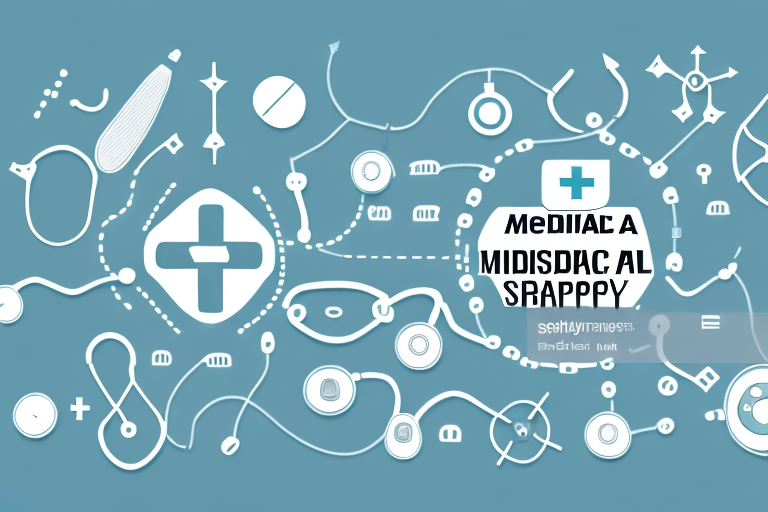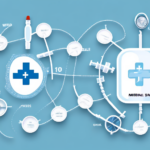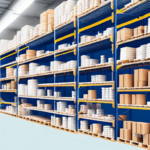Introduction to Healthcare Logistics
Healthcare logistics plays a pivotal role in ensuring that medical supplies, equipment, and pharmaceuticals are delivered efficiently to hospitals and other healthcare facilities. Effective logistics management can significantly improve patient outcomes by guaranteeing timely delivery of essential materials, reducing medical errors, and optimizing supply chain operations. This article delves into the comprehensive benefits of logistics in the healthcare sector.
Improving Patient Outcomes Through Logistics
Timely Delivery of Medical Supplies
The timely delivery of medical supplies is crucial for the seamless operation of healthcare facilities. According to a World Health Organization report, efficient logistics can reduce stockouts by up to 30%, ensuring that healthcare providers have the necessary resources to deliver quality patient care.
- Reduced Stockouts: Accurate demand forecasting prevents shortages of essential supplies.
- Cost Savings: Timely deliveries eliminate the need for expedited shipping, reducing overall costs.
- Enhanced Care Quality: Availability of medical supplies leads to better patient management and outcomes.
Reducing Medical Errors
Logistics management ensures that medical supplies and equipment are accurately labeled and delivered to the correct locations, thereby minimizing the risk of medical errors. Proper logistics can lead to a significant decrease in medication errors, as highlighted by a study in the Journal of Patient Safety.
Logistics in Healthcare Supply Chain Management
Inventory Management and Demand Forecasting
Effective supply chain management in healthcare relies heavily on robust inventory management and demand forecasting. Utilizing advanced tools and data analytics, healthcare facilities can maintain optimal inventory levels, reducing waste and ensuring the availability of necessary supplies.
- Optimized Inventory Levels: Prevents overstocking and understocking of supplies.
- Cost Efficiency: Reduces holding costs and minimizes expired inventory.
- Improved Responsiveness: Enhances the ability to respond to sudden changes in demand.
Secure Management of Patient Information
Beyond physical supplies, logistics in healthcare also encompasses the secure and efficient transfer of patient information, such as medical records and test results. Ensuring the quick accessibility of this information is vital for timely and effective patient care, especially in emergencies.
Enhancing Efficiency and Cost-Effectiveness
Optimizing Supply Chain Operations
By streamlining supply chain operations, healthcare facilities can achieve substantial cost savings. This includes reducing transportation, warehousing, and distribution expenses through strategic planning and partnerships.
- Transportation Optimization: Efficient routing reduces fuel consumption and delivery times.
- Warehouse Management: Automated systems improve storage efficiency and retrieval processes.
- Vendor Partnerships: Collaborative relationships with suppliers enhance reliability and cost-effectiveness.
Resource Utilization and Waste Minimization
Effective logistics management leads to better resource utilization and significant waste reduction. Implementing just-in-time inventory systems can minimize excess stock and reduce the environmental impact of healthcare operations.
Leveraging Technology and Data Analytics
Data-Driven Decision Making
Incorporating data analytics into healthcare logistics allows for informed decision-making. By analyzing inventory levels, usage patterns, and delivery performance, logistics managers can enhance operational efficiency and patient care quality.
- Predictive Analytics: Anticipates future demand and adjusts inventory accordingly.
- Real-Time Tracking: Monitors the movement of supplies for better accountability.
- Performance Metrics: Evaluates logistics processes to identify areas for improvement.
Emerging Technologies in Healthcare Logistics
Advancements such as the Internet of Things (IoT), artificial intelligence (AI), and blockchain are revolutionizing healthcare logistics. These technologies enhance transparency, improve traceability, and increase the reliability of supply chains.
- IoT Devices: Enable real-time tracking of medical supplies and equipment.
- AI and Machine Learning: Optimize routing and inventory management through predictive analytics.
- Blockchain: Ensures supply chain transparency and reduces fraud.
Sustainable Practices in Healthcare Logistics
Reducing Carbon Footprint
Adopting sustainable logistics practices helps healthcare facilities minimize their environmental impact. Strategies include using fuel-efficient vehicles, optimizing delivery routes, and implementing recycling programs for medical and packaging waste.
- Eco-Friendly Transportation: Utilizes electric or hybrid vehicles to lower emissions.
- Route Optimization: Minimizes travel distance and reduces fuel consumption.
- Waste Management: Promotes recycling and proper disposal of medical waste.
Implementing Green Supply Chain Strategies
Green supply chain strategies focus on sustainability throughout the entire supply chain process. This includes selecting environmentally responsible suppliers, reducing packaging materials, and encouraging the use of reusable medical equipment.
Future Trends and Best Practices
Innovations Shaping the Future of Healthcare Logistics
The future of healthcare logistics is being shaped by several innovative trends, including the use of drones for delivery, autonomous vehicles, and advanced robotics in warehousing. These technologies promise to enhance the speed, accuracy, and efficiency of logistics operations.
- Drones and Autonomous Vehicles: Facilitate rapid and contactless delivery of medical supplies.
- Advanced Robotics: Improve warehouse automation and inventory management.
- Blockchain Integration: Enhances supply chain security and traceability.
Best Practices for Effective Healthcare Logistics Management
Implementing best practices is essential for overcoming common challenges in healthcare logistics. These practices include:
- Supplier Collaboration: Establishing strong relationships with reliable suppliers.
- Automated Systems: Utilizing technology for inventory tracking and management.
- Continuous Improvement: Regularly assessing and refining logistics processes.
- Risk Management: Developing strategies to mitigate potential disruptions.
Conclusion
Logistics is a cornerstone of the healthcare industry, directly influencing patient outcomes, operational efficiency, and cost-effectiveness. By embracing advanced technologies, sustainable practices, and data-driven strategies, healthcare facilities can optimize their logistics operations to deliver superior care. As the industry evolves, continuous innovation and adherence to best practices will be essential in meeting the dynamic needs of patients and healthcare providers alike.




















